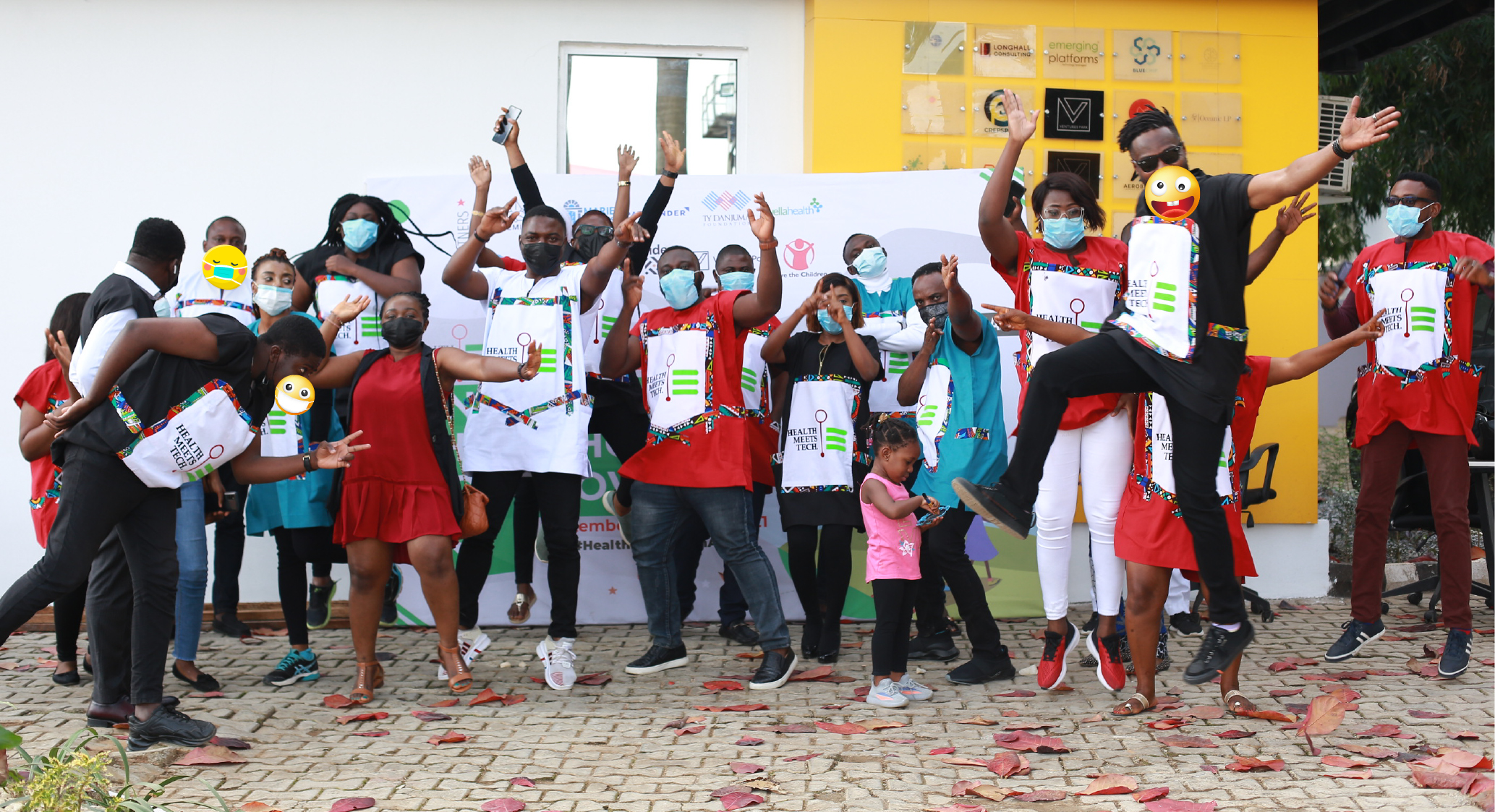Ìgwèbụ̀íké is an Igbo phrase which means “there is strength in community.” Community plays an important role in every aspect of our lives. Having a sense of community unites us. Being a part of a community can make us feel as though we are a part of something greater than ourselves. Since 2017, through the Health Meets Tech hackathon series, EpiAFRIC has been building a community of health, tech and business practitioners who are designing and deploying contextually relevant tech solutions across Africa.
Health meets tech is a 3-day Hackathon designed to support opportunities to promote innovation in the healthcare industry through partnerships with other sectors, notably the technology and business industries. EpiAFRIC in partnership with the private sector, non-governmental organisations and philanthropic foundations has delivered five hackathons across three African countries — Nigeria, Kenya and South Africa.
September 10 and 11, 2021 was an assembling of old and a welcoming of new community members as EpiAFRIC threw open its virtual doors to members of health, tech and business communities around the world at its first ever Pan-African hackathon and the sixth in the hackathon series. In true Pan-African fashion, a community of professionals from different countries across Africa and beyond came together to partner with EpiAFRIC, speak from a wealth of experience, mentor the teams and judge the innovative solutions designed for health.
EpiAFRIC partnered with PandemicTech, Marie Stopes Nigeria, Riders for Health, WellaHealth, Pathfinder International, Save the Children Tanzania, Doctoora, Ventures Platform and Nigeria Health Watch.
Hacking for better access to healthcare
The healthcare industry was worst hit by the COVID-19 pandemic, but this has triggered an extraordinary wave of innovations, creating a unique opportunity to transform healthcare delivery systems using more decentralised approaches, supported by technology. It is therefore appropriate that the theme for this year’s hackathon focused on “Navigating Healthcare Post COVID-19”.
Speaking on the motivation behind the theme, Ifeanyi Nsofor, CEO of EpiAFRIC, said, “One day the pandemic will end so, we must look for solutions that improve health across the continent to ensure that people have better access to healthcare post COVID-19”.
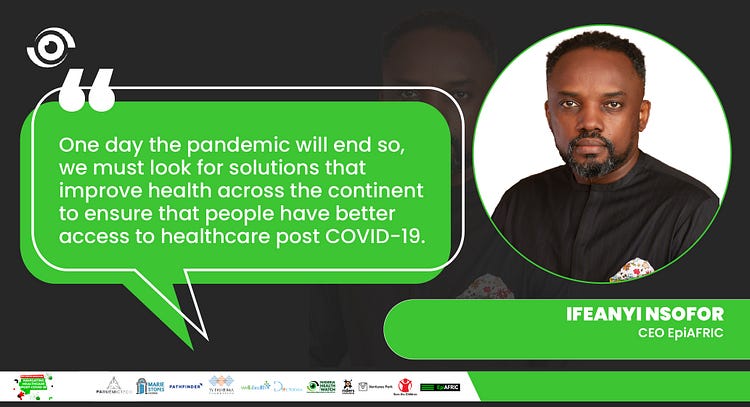
The first day of the hackathon was virtual. Before the assembled teams began hacking, they were taken through a session on design thinking by Ifeanyi Nsofor. The session covered the five steps in design thinking — empathise, design, orestes, prototype and test. They were encouraged to think about the people for whom they were designing the solutions to ensure that their solutions were people centered and equitable. Chibuike Alagboso Programme Manager and Health Reporter at Nigeria Health Watch took the participants through the health meets tech pitch guide advising them to keep their pitch, “short, simple and fun to listen to”.
Because we innovate in small ways as well as big ways, this year, the opening ceremony took place on day two which being a hybrid event, had onsite as well as online participants. From Austin, Texas, Dr Andrew Nerlinger, Keynote speaker and co-founder, Pandemic Tech in his speech said, “The Health Meets Tech hackathon is about building an ecosystem of entrepreneurs and innovators across the continent of Africa who are dedicated to solving today’s most pressing health related challenges”. Dr Nerlinger encouraged the participants to look beyond the specific challenges that are part of the hackathon and see this as an opportunity to build a network and a community of people that they can call on during their entrepreneurial and innovation journey.
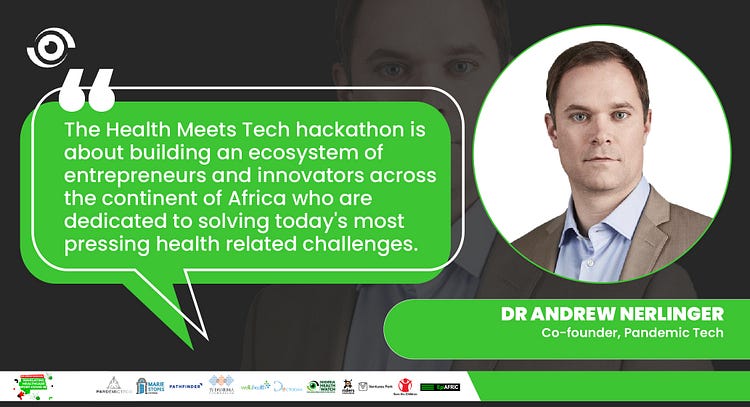
A panel discussion provided an opportunity for the speakers to share their most important lessons from COVID-19 and how those lessons can be incorporated into healthcare delivery post COVID-19. Panelists included, Estelle Mbadiwe (Nigeria); Dr Cyan Brown (South Africa); Carl Manlan, (Dubai); Dr. Elliot Koranteng Tannor (Ghana); Tolu Adeleke-Aire(Nigeria); Stellah Bosire (Kenya) and Kingsley Odogwu (Nigeria).
Dr Stellah Bosire, co-Executive Director UHAI Nairobi said, “One lesson we missed to take up during the Ebola outbreak in Liberia was the power of community health workers as our first line of defense. They are very key when we have pandemics and epidemics”.
Estelle Mbadiwe, founding partner of Ducit Blue Solution noted that, “It’s important to localise everything. Get local data to build local solutions that address local problems”.
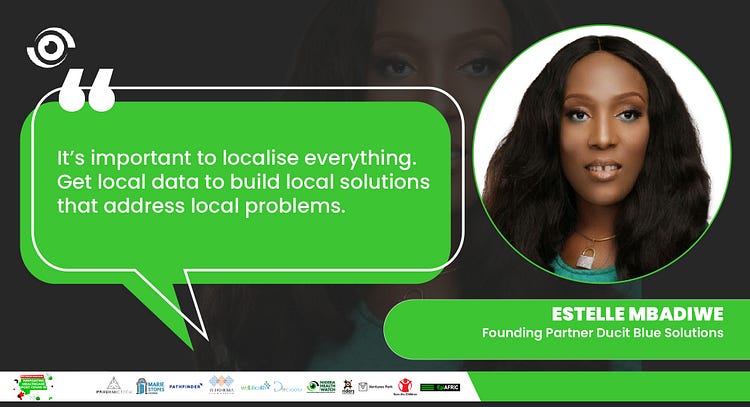
Carl Manlan, Senior New Voices Fellow at Aspen Institute said he looked forward to seeing tech solutions that were human centered. He said, “When we think about tech solutions and their design, I tend to think that the solution is not a technological one. It is a human centered solution which leverages technology to improve health outcomes.”
Announcing the winning teams
A total of 118 entries were received from four continents — Africa, Asia, Europe and North America; 19 teams sent in submissions, 10 teams participated in the hackathon and seven teams sent in their pitches.
Hacking ended on Saturday and there was a great deal of excitement and anticipation in the air as the teams began to send in their video pitches.
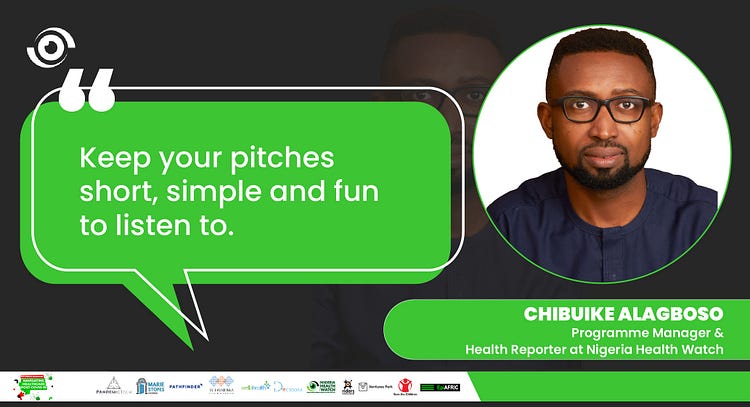
Team CerviXpert designed a cervical screening computer and smartphone application which can be used in resource poor settings.
Team Tele Healthway developed a tech solution designed to harness national and individual data to bridge gaps for local providers and larger networks of healthcare workers to benefit from a shared knowledge pool and early warning system.
Team Hundessa designed a low-cost, non-invasive, and portable Pulse Oximeter device to measure blood oxygen saturation and heart rate.
Team MedTech Phoenix designed a solution that connects health commodity marketers and suppliers to health providers. They will leverage on artificial intelligence and other forms of technology to deliver health commodities real time.
Team Med-Tech Africa designed ‘Forcardio’, an application that collects and transmits the health data of people with cardiovascular diseases (CVD) from any CVD monitoring device they use to their cardiologist.
Team Audacious’s solution was ‘J Blood Match’, an application designed to help connect voluntary blood donors to matching recipients at the point of need.
Team Tech Aid designed an e-blood donation and logistics software to enhance and improve blood donation.
The judges had until Friday September 17 to deliberate over the pitches and collate results focusing on technical innovation, creativity, presentation, business model, impact of the solution, etc.
On Monday, September 20, the winners were announced. Congratulations to Team Med-Tech Africa and Team Audacious winners of 2021 EpiAFRIC Health meets tech Pan-African Hackathon. Congratulations to all the teams that participated in the hackathon.


In addition to the bespoke mentoring process developed by EpiAFRIC and partners to help the winning teams take these solutions to greater heights, Dr Moredreck Chibi, Regional Adviser, Health Innovation, WHO AFRO, announced that they will be supporting the winners on their platform, “We are happy to support the hackathon winners on our heavily patronised innovation marketplace platform, which currently enjoys over 10 million subscribers. This platform was developed to make scaling up of innovation a continuous process”.
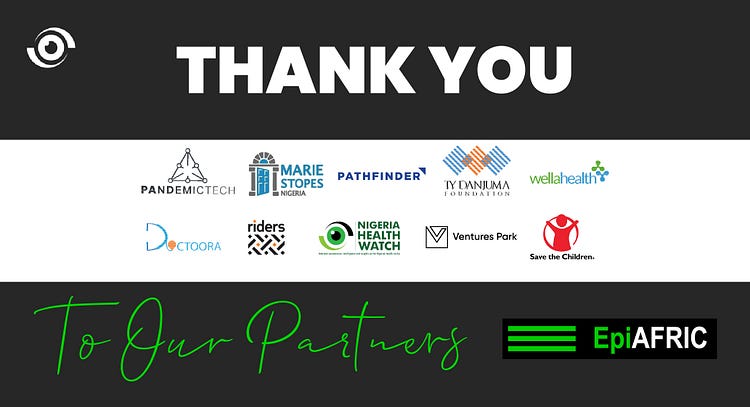
It is said that “Technology is best when it brings people together”. Through the Health Meets Tech Hackathon, EpiAFRIC and its partners will continue to drive and build a formidable health and tech community with the sole purpose of encouraging the development of innovative solutions that will improve Africa’s health security.


